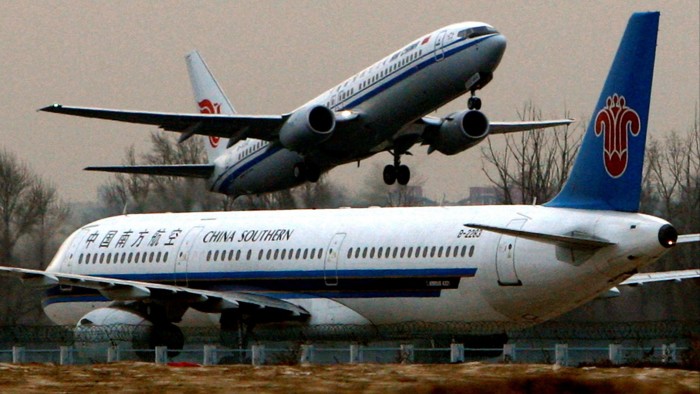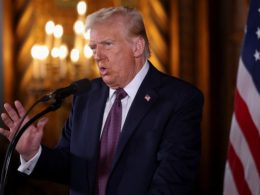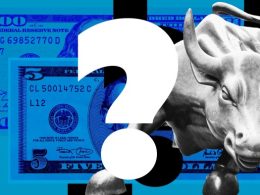This article is an on-site version of our FirstFT newsletter. Subscribers can sign up to our Asia, Europe/Africa or Americas edition to get the newsletter delivered every weekday morning. Explore all of our newsletters here
Today’s agenda: Citi expected to miss key target; Nippon Steel bets on Trump; UK long-term borrowing costs soar; and Big Read on robots taking jobs
Good morning. We start with a story on China’s three biggest state-owned airlines, which are rapidly expanding routes and capacity to Europe, undercutting regional rivals such as Lufthansa and Air France.
Why is this happening? Several western carriers had to slash direct flights to mainland China in 2024 after Russia banned most European airlines from its airspace in 2022. The ban, in response to western sanctions over Ukraine, added hours to flights to Asia and drove up fuel bills. But Air China, China Eastern and China Southern are all still able to fly over Russia, giving them a cost advantage over European rivals and allowing them to offer tickets that are roughly 5 to 35 per cent cheaper.
How has it affected profits? European airlines complain that Chinese carriers have an unfair advantage and are establishing a stranglehold on routes between the two regions. But China’s mixed economic recovery means the three big Chinese carriers are still losing money overall, recording combined losses of Rmb13.3bn ($1.8bn) in 2023, a stark contrast to booming profits reported by European and other Asian flagship carriers.
Western industry executives privately question the level of demand for the Chinese airlines’ flights to Europe, which some say could be lossmaking. Analysts say political motivation is also at work as Beijing expands its visa-free plans to bring back tourism. Some added that carriers were helped by route subsidies and that state ownership meant they had significant credit facilities available. Read the full story.
-
More on aviation: A growing number of passengers are bypassing congested hub airports and flying directly, as airlines take advantage of new jets to redraw their networks.
Here’s what else we’re keeping tabs on today:
Five more top stories
1. Exclusive: Wall Street analysts are betting Citigroup will fall short on a closely watched profitability measure, reaching return on tangible common equity of just over 9 per cent next year. This is well below Jane Fraser’s goal of hitting 11 to 12 per cent by 2026, casting doubt on the chief executive’s sweeping overhaul of one of America’s biggest banks.
2. Nippon Steel and US Steel are betting Donald Trump can be persuaded to back their $15bn deal, accusing President Joe Biden of blocking the transaction to win union support in last year’s election. Trump had announced his opposition to the deal during his campaign, but here’s why the companies think their litigation strategy will work.
3. Trump refused to rule out using force to obtain Greenland or take control of the Panama Canal and vowed to rename the Gulf of Mexico as the “Gulf of America” in a freewheeling press conference yesterday. Earlier in the day, the Danish prime minister said Greenland, an autonomous part of the kingdom of Denmark, was “not for sale”.
-
Trump’s Arctic gambit: With the US their main security guarantor, politicians in Denmark and Greenland have been struggling to respond to the president-elect’s proposal.
4. Europe’s start-ups can still succeed in artificial intelligence despite their huge funding gap with the US by developing applications built on top of platforms by US-based groups such as OpenAI or Google, Skype’s co-founder has said. Read more from Niklas Zennström’s interview with the Financial Times.
5. US stocks sold off and government bond yields jumped yesterday after strong jobs and services data prompted investors to bet the Federal Reserve would lower interest rates just once this year. One chief investment officer said investors were “slowly absorbing the fact that the economy is actually pretty strong”.
The Big Read

As more businesses experiment with robots, the backlash against automation from labour groups representing UPS drivers, Las Vegas casino workers and grocery store employees has intensified. Previously run-of-the-mill union negotiations over pay and conditions have mushroomed into larger, more existential disputes over the relationship between humans and machines.
We’re also reading . . .
-
UK grooming gangs: Ministers are facing growing calls for a national inquiry after Elon Musk reopened the decades-old scandal. Here’s what the government has done so far.
-
Car software: As electric vehicles and more sophisticated systems proliferate, managing smooth updates is more important than ever, writes Brooke Masters.
-
Israel: Arab-Israelis fear new laws on deportations and elections are turning them into “second-class citizens” in the country.
-
Sheikh Hasina: A man jailed for years by the former Bangladeshi ruler’s regime told the FT that Dhaka police raided his family home after British journalists asked her niece, UK City minister Tulip Siddiq, about his plight.
Chart of the day
The UK’s long-term borrowing costs have hit their highest level since 1998, as a bond sell-off threatens to wipe out the “headroom” chancellor Rachel Reeves has under her recently overhauled fiscal rules.

Take a break from the news
Why does the universe exist? A facility in Sweden is seeking to produce the world’s most powerful source of neutrons, which may help answer that question, writes Anjana Ahuja.

Thank you for reading and remember you can add FirstFT to myFT. You can also elect to receive a FirstFT push notification every morning on the app. Send your recommendations and feedback to firstft@ft.com
Source link









